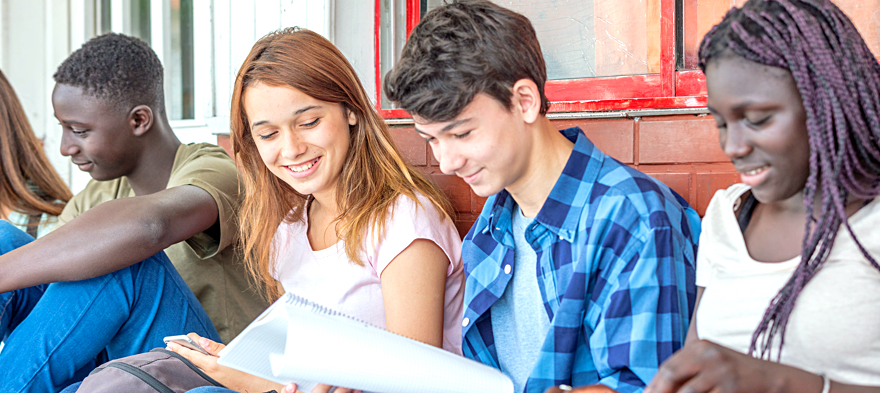
Jun 26, 2020 12:43:00 PM
All across the country confederate statues are coming down, schools and road names are changing too. In my home state, New Mexico, we’re beginning to address our statues, buildings and roads that honor the Spanish "conquistadores" who “explored” and “settled'' this land. I mean, the word "conquistador" literally means conqueror!
As I watch the fate of Onate and Jefferson, Lee and others, and continue to see climbing COVID-19 rates, I’m experiencing cognitive dissonance because my inbox and calendar are all about internet connectivity, physical space and diagnosing learning loss. And while these are necessary considerations for reopening schools, they’re entirely insufficient.
If we are going to offer an educational experience that truly responds to the twin crises of the COVID-19 pandemic and American racism, we need to ensure that schools reopen with culturally and linguistically responsive education (CLRE) at the core. What does that mean?
First, culturally relevant and rigorous curriculum. Here in New Mexico, in high school English, I read "Bless Me, Ultima," Billy Budd and Corky Gonzales, as well as Emily Dickinson. All students deserve to read texts, study the narratives of their people and see themselves in the content. And yet, this is not enough.
[pullquote]You can’t just add a few new books with Brown characters and call it good.[/pullquote] We need to interrogate and decolonize the curriculum so teachers can ignite intellectual curiosity and foster critical consciousness at the same time. This will require teacher professional development and pressure on curriculum publishers, reviewers and adopters.
Second, students experience belonging as scholars in the intellectual community of school. A sense of belonging is something that White students have by default, but students of color receive constant signals that they don’t belong. And while school closures may have created an opportunity for Asian, Black and Brown parents to provide a safer and more inclusive learning environment free from microaggressions and threats, we have an opportunity to bring that feeling into schools this fall.
Schools can bring educators, students and families together to plan lessons that tap into students’ existing funds of knowledge from home and community, acknowledge students' resilience and give credit for the learning that happens through activism as an important element of rigor.
Third, students experience a socially-emotionally and intellectually safe learning environment. Schools must recognize that in order for learning to happen, in order for the brain to accept new information, students must feel safe. Reopening plans must consider how trauma, mental and physical health, and nutrition all influence healthy learning and development. [pullquote]Educators must provide time and space for healing and must do so in ways that are race-conscious, not colorblind.[/pullquote] Districts can forge stronger school-community partnerships to provide wrap-around supports and services. Schools can also ensure that students experience psychological safety by administering school climate surveys and developing actionable response plans.
Last, listen to students. [pullquote position="right"]Young people are responding to the urgency of the moment[/pullquote], despite not being taught civic action in schools. It’s time to move past the advisory councils that make adults feel better, but do nothing to offer agency to those who have the most at stake. We need formal mechanisms for students and families to express what is most important to them and give them actual decision-making power. Schools, districts and states can commission qualitative research from students, add student representatives to formal boards and compensate student and family representatives for their time and contributions.
CLRE was pioneered by Gloria Ladson-Billings and Geneva Gay in the 1990s, and built upon by scholars like Zaretta Hammond and Dena Simmons and educators like Jeff Duncan-Andrade and Kara Bobroff. Look to these leaders and to new recommendations from The Aspen Institute for how to get started. We’re not just reckoning with the pandemic, but with generations of colonization and oppression and this moment demands a new approach.
Danielle M. Gonzales is managing director with the Education & Society Program at the Aspen Institute, which recently released Pursuing Social and Emotional Development Through a Racial Equity Lens: A Call to Action. In this role, she leads efforts to convene senior education leaders at all levels of education to tackle the most vexing issues in education, to develop and foster partnerships with a diverse range of education leaders, and to write and develop publications and resources associated with professional learning; social, emotional, and academic development; and educational equity. Prior to this, Danielle was a senior program officer at the Bill & Melinda Gates Foundation working to advance the Foundation’s K-12 strategy in key states and developing the Foundation’s strategy for engaging faith communities in education reform. Danielle has over 15 years of experience in education philanthropy, policy and advocacy in both pre-k and K-12 education and at both the state and national level. She began her career teaching fourth grade in Brownsville, TX.
Few issues in education spark more tension and debate than standardized testing. Are they a tool for equity or a burden on students? A necessary check on school systems or a flawed measure of...
Charter schools are public schools with a purpose. Operating independently from traditional school districts, they're tuition-free, open to all students, and publicly funded—but with more flexibility...
Despite the benefits of a diverse teaching force, prospective teachers of color fall out of our leaky preparation pipeline at every stage: preparation, hiring, induction, and retention. Here’s what...
Ed Post is the flagship website platform of brightbeam, a 501(c3) network of education activists and influencers demanding a better education and a brighter future for every child.
© 2020-2025 brightbeam. All rights reserved.
Leave a Comment